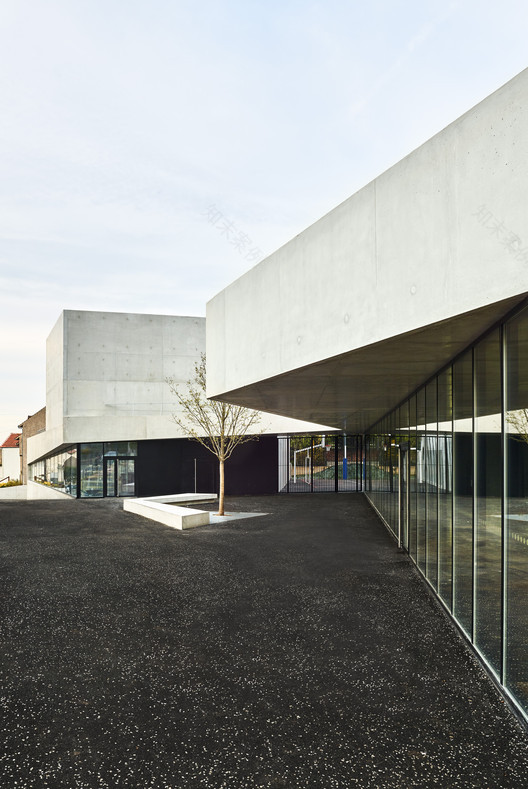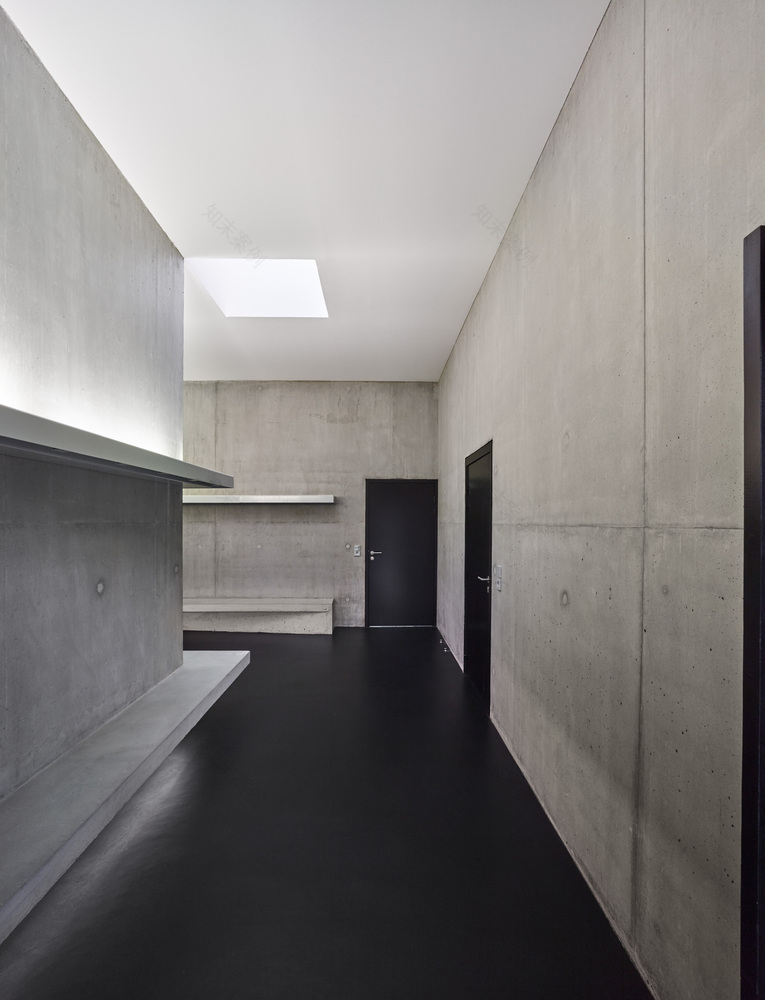查看完整案例


收藏

下载
© Eugeni Pons
欧根尼·彭斯(Eugeni Pons)
架构师提供的文本描述。这座建筑位于20世纪50年代巴黎郊区的一个住宅区。大型运动场位于场地的远端,使街道具有一定的幅度,并产生了公共空间,从而加强了建筑物作为社区设施的地位。住房的数量与附近的房屋一致。方案的分散造成了两卷书之间的错位,使人们瞥见了场地的中心部分,并为花园打开了视野。
Text description provided by the architects. The building is located in a 1950s residential area in the Paris suburbs. The large sports hall is positioned at the far end of the site, giving the street a degree of amplitude and generating a public space which reinforces the building’s status as a community facility. The volume of the accommodation is in keeping with the houses in the neighbourhood. The fragmentation of the programmes produces a displacement between the two volumes, offering glimpses of the central part of the site and opening up views towards the gardens.
这种体积的分散与一个连续的天篷相矛盾,它通过斜向扭曲和扭曲消失的线条来打破透视图。当它展开时,它在不同的张力点-天篷的长度-之间创造了一种无形的平衡。
This dispersion of volumes is contradicted by a continuous canopy which breaks up the perspective by obliquely distorting and twisting the vanishing lines. As it unfolds, it creates an invisible balance between the various points of tension the length of the canopy.
© Eugeni Pons
欧根尼·彭斯(Eugeni Pons)
体积的位移扩大了空间,建立了矛盾的消失线。这种开放的、动态的形状改变了人们对极限的看法,并放松了街道和场地之间的通常关系。建筑不再是公共空间和私人空间之间的边界-这座建筑可以窥见通常被隐藏的东西。
The displacement of the volumes expands the space and sets up contradictory vanishing lines. This open, dynamic shape alters the perception of limits and loosens the usual relationships between street and site. Architecture ceases to be a border between public and private spaces – the building allows glimpses of what is usually concealed.
© Eugeni Pons
欧根尼·彭斯(Eugeni Pons)
Ground Floor
© Eugeni Pons
欧根尼·彭斯(Eugeni Pons)
一个完全透明的画廊可以从街道上看到更衣室的轮廓。由光泽度、光泽和透明的表面产生的反差强调了对空间的抽象化的印象。
A completely transparent gallery offers views from the street of the outline of the changing rooms. The contrasts produced by the matte, shiny and transparent surfaces accentuate the impression of an abstraction of space.
© Eugeni Pons
欧根尼·彭斯(Eugeni Pons)
大厅四面都有自然光,透明玻璃散发出均匀柔和的光线。天花板似乎处于悬浮状态,结构被玻璃的双层厚度吸收到消失点。大厅的下部由间隔的垂直板条组成,板条的一侧是灰色的。该空洞提供技术服务和黑色声学处理。这些缺口加强了对深度的印象,并使厚度向整体倾斜。
The large hall has natural lighting on the upper part of all four sides, with opalescent glass diffusing a uniformly soft light. The ceiling appears to be in a state of levitation, and the structure is absorbed to the point of disappearance by the double thickness of the glass. The lower part of the hall comprises spaced vertical slats; one side of the slats is grey. The hollows house the technical services and the black-coloured acoustic treatment. These gaps reinforce the impression of depth and lend thickness to the whole.
© Eugeni Pons
欧根尼·彭斯(Eugeni Pons)
灰色的混凝土,玻璃,和光亮的和光洁的表面在不同的空间上是不同的,创造了一种永恒的气氛。
The grey concrete, the glass, and the shiny and matte surfaces are varied over the different spaces, creating a timeless atmosphere.
Architects Dominique Coulon & associés
Location 28 Rue des Closiaux, 92140 Clamart, France
Category Gymnasium
Architect in charge Dominique Coulon
Assistants Architects David Romero-Uzeda, Olivier Poulat, Chang Zhang, Steve Letho Duclos
Area 2596.0 m2
Project Year 2015
Manufacturers Loading...
客服
消息
收藏
下载
最近



















